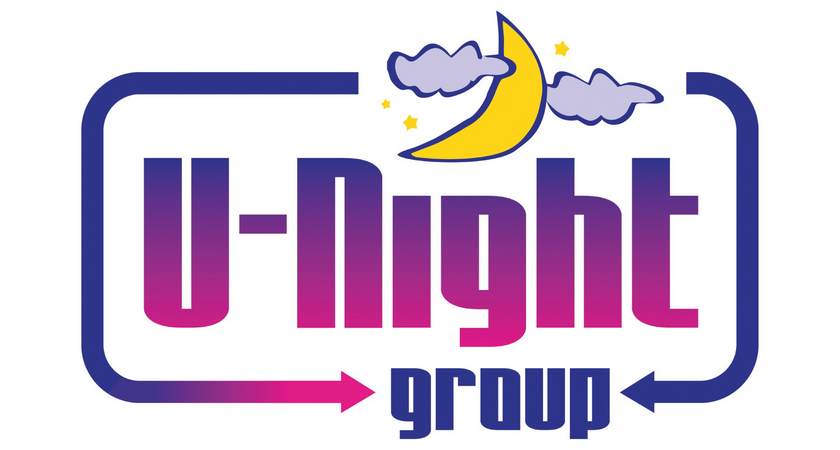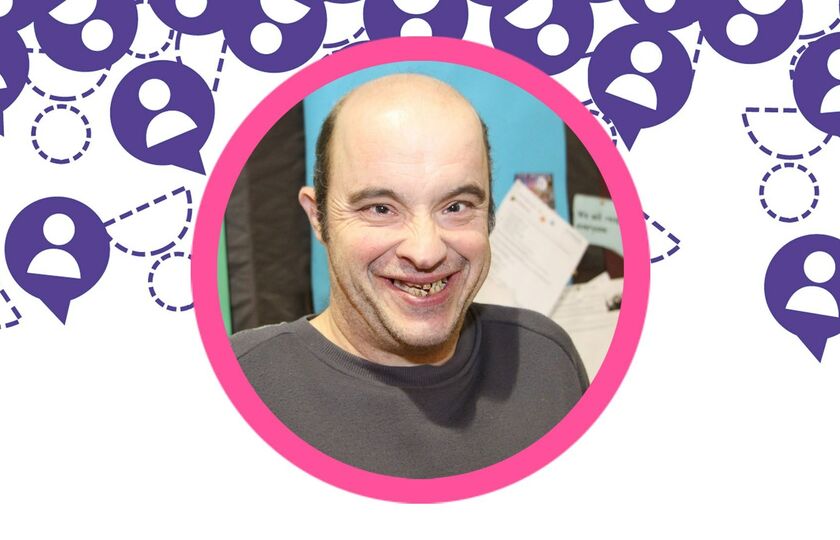CQC's review of sexual safety and the support of people’s sexuality in adult social care.
Supported Loving toolkit
Staying safe in relationships

Developing relationships can be associated with risk factors. However, any risks should be balanced against the benefits and joys that relationships can bring.
This section recognises that developing relationships can be associated with risk factors for adults with a learning disability and/or autism. However, this should be balanced against the benefits and joys of relationship opportunities, which are known to significantly impact on both physical and mental wellbeing. How to mitigate the risks and support people to have safe, positive relationships, including sexual relationships, is the focus of this page.
Key research
- A survey of 152 councils in England with adult social services’ responsibilities found that 2991 reports of sexual abuse against adults with learning disabilities had been recorded (Victoria Derbyshire, 2015).
- Women with learning disabilities are particularly vulnerable to sexual violence and exploitation, but men are also at risk (Mencap, Behind Closed Doors, 2001).
- The statistics represent, 'the tip of the iceberg', as for many reasons, there is known under-reporting of incidents.
Relevant legislation and policy
The Care Quality Commission (CQC) have provided guidance on personal relationships and sexual safety for providers, which sets out expectations of approaches and actions, which will serve to protect, whilst also empowering individuals to learn about and express their sexual choices. (Promoting sexual safety through empowerment 2020; Relationships and sexuality in adult social care services, 2019.)
The following legislation applies:
- Sexual Offences Act 2003
- Mental Capacity Act 2005
- Equality Act 2010
- Care Act 2014
- Human Rights Act 1998.
See our Supported Loving toolkit pages on the Human Rights Act and Mental Capacity for more information.
What are the most common challenges faced by people in this area?
Sometimes in our attempts to focus on prevention and reduction of sexual harm, our response is to offer protection and reduced opportunities to have relationships. However, there is evidence to suggest that a better approach involves providing information, education and advice that will support the development of skills to help people recognise and avoid abusive situations.
It is also important to ensure that staff and family carers have the confidence, knowledge and skills to support people to have healthy relationships, through training, information and appropriate guidance. The aim should be to recognise and positively address issues that may arise from developing relationships, whilst also being aware of the potential for harm or exploitation.
People may have difficulty in understanding or managing:
- the difference between healthy and unhealthy relationships
- the nature of abusive relationships
- relationship breakdowns
- expectations based on fantasy/not real life (eg soaps)
- where to meet people safely
- opportunities to develop positive relationships
- understanding other people’s motives
- where to go for help, and
- consent, assertiveness and being able to say, ‘no’.
How best to support people in this area
Dave Hingsburger, a Canadian Psychologist and learning disability relationship’s expert, developed the useful concept of, “the ring of safety.” This considers a number of proactive supports that work together to provide individuals with the skills and protections to keep them safe. They are:
- Sex education - Hingsburger suggests that: “when people with disabilities are denied access to sex education, they become perfect victims, because they can’t report what they can’t say.” Providing people with sex education, including about how their bodies work and the correct names to use, will assist them to understand and report abuse. Accurate information about the positive, pleasurable aspects of sexual expression, based on self and mutual respect is more likely to encourage the seeking of nurturing relationships.
- Privacy awareness - Teaching about personal privacy is an important aspect of building safety awareness, especially in relation to knowing that you own your body, and no one can touch it without permission. If this is understood and modelled by supporters and care givers, any violation will be seen as unusual and worthy of reporting.
- The ability to "non-comply" - Understanding that agreeing to requests is not always necessary, is something that people who have experienced congregated social care services may find difficult to understand. Without meaning to, services may give the message that things work more smoothly when everyone says, ‘yes.’ This level of compliance when transferred to relationship situations can lead to people being very vulnerable. Therefore, teaching about assertiveness, consent and decision-making, alongside advocacy skills are important aspects of the safeguarding armour.
- Someone who listens - This part of the ring suggests that people are safer if they have a number of trusted people in their lives with whom they can communicate. There are benefits of having a range of potential listeners, including those outside service settings, such as friends, partners, family, and advocates. The people who know the individual best are well-placed to notice subtle changes in their behaviour or respond to concerns that they may raise about potentially abusive behaviours by someone else.
- Understanding of personal rights - People will be better protected if they understand both their sexual rights and their sexual responsibilities. It is also important to provide information about individual rights within the service system, so that people have a clear idea about what to expect from support and who might assist them. This means that policies and procedures, for instance, about personal and intimate relationship support, should be available and accessible.
- Healthy self-esteem - Having an unhealthy self-image and lacking confidence may contribute to individuals entering and staying in abusive situations. Therefore, supporting people to recognise their strengths and competencies, including self-worth, is an essential part of helping to develop what has been called, “a first line of defence.” This needs to be both a regular and on-going process as well as part of an intentional training programme.
Watch Sue Sharple's webinar discussing approaches to preventing the sexual harm of adults with a learning disability, drawing on policy and practice to consider how we might do things differently.
Do...
- teach people the difference between healthy and unhealthy relationships
- provide accessible information about safeguarding and where to go for help and advice
- support the development of a range of trusted relationships
- provide access to evidence-based, accurate, sex positive sex education, that is regularly repeated and reinforced
- ensure that people have access to self-advocacy services that support and encourage them to understand their rights and represent their needs
- be aware that having close relationships can contribute to keeping people safe.
Don't...
- shy away from responding to questions that people with a learning disability might ask about sex and relationships
- assume that ignoring the need for sexual expression will keep people safe
- only enable people to have relationships within the confines of their service provision
- focus solely on protective safeguarding, to the exclusion of supporting the freedom to learn from experience.
Case Study
George had experienced many difficulties with relationships over the years. He had been accused of, “inappropriate behaviour,” and been cautioned by the police, who didn’t charge him due to his learning disability. He then developed what he thought was a relationship, but this person expected him to give her money for sex. She didn’t treat him well, was sometimes violent and abused him financially. Support services were worried about his safety and made a safeguarding referral. After numerous meetings, it was concluded that he had capacity and had chosen to be in this relationship.
When George got involved with a local social group, it became clear that there were gaps in his knowledge about safe sexual relations, but he was also very keen to find a partner. He attended a six-week training course called: Y be Shy about Sex and Relationships, which helped him to feel less embarrassed about discussing intimate issues. It also highlighted that he did not understand about consent, which had contributed to some of the earlier difficulties. The course helped him to recognise the need to be more assertive and he was able to practice these skills within a safe, supportive group.
He then signed up to a friendship and dating agency for adults with a learning disability and was fortunate to find a suitable partner on his first date. With a better understanding of dating, relationships and personal safety, George has been able to develop and sustain a rewarding, supportive relationship.
Sue Sharples, Director at U-Night Group a user-led training and advocacy organisation and Director at Y Training and Consultancy, providing training for staff, family members and self-advocates on friendships, relationships, and intimacy.
The views expressed in the Supported Loving toolkit are not necessarily those of Choice Support.
Resources
Promoting sexual safety through empowerment
Relationships and sexuality in adult social care services
ARCUK Helping each other
ARC's project and training materials for people with learning disabilities surrounding sexual exploitation.
SCLD Safe and healthy relationships. Empowering people through education
Report providing education as the basis for safe and healthy relationships and empowering and supporting individuals to develop them.
Just say know!
Dave Hingsburger's Just say know! Understanding and reducing the risk of sexual victimisation of people with developmental disabilities.
NSPCC P.A.N.T.S resources
Everything you need for an hour-long lesson to teach people about PANTS and help to keep them safe.
My Rights Charter-Sexuality and Relationships
Supported Loving, Tizard and NDTI's My sexuality and relationships’ rights charter.






